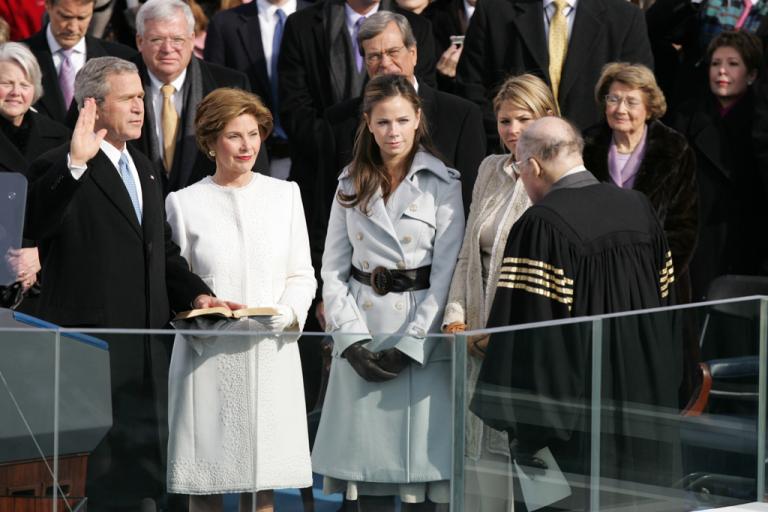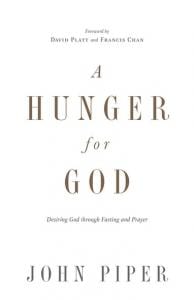It was “time to take stock both politically and spiritually,” the Republican White House official told his fellow evangelicals. Despite the GOP again holding the Oval Office and appointing “the vast majority of American judges” and Supreme Court justices, he could only conclude that “things are hardly better” from a Christian point of view:
Divorces are rampant and more and more children are growing up in a home with just one parent. Nearly a million and a half abortions are performed every year. There are more children in poverty today than there were twenty years ago. A greater percentage of Americans lack health care than ever before. Educational achievement is hardly soaring. Millions of Americans live in what seems like utterly intractable poverty.
And in the process of achieving those dubious results, “Christians have alienated everyone on the other side, many of them good people with genuine policy differences,” preventing “relationships, fellowship, and the chance to share Jesus” — whose name “doesn’t bring to mind the things he said he wanted associated with his followers… Can anything that dilutes the name of Jesus be worth it for Christians like me?”
Christians, that is, like David Kuo, the evangelical Christian who served as special assistant to President George W. Bush, helping to lead that administration’s office for faith-based initiatives from 2001 to 2003.
Three years after his exit from the White House, Kuo published Tempting Faith: An Inside Story of Political Seduction, an account of personal disillusionment with “politicians parched for votes but apathetic about… Christians’ faith.” In the end, Kuo concluded that conservative Christians had traded “Jesus for politics” and badly damaged their witness, all for the sake of “great electoral success and marginal political success.”
A month later, even the electoral success evaporated. In the 2006 midterm elections, Democrats took back both houses of Congress (for the first time since the Republican revolution of 1994) and won the majority of governorships and plurality of state legislatures.
That defeat prompted new interest in the proposal that closed Kuo’s book: that Americans Christians engage in a two-year “fast from politics.” He explained it in these terms:
We need to eschew politics to focus more on practicing compassion. We need to spend more time studying Jesus and less time trying to get people elected. Instead of spending millions of dollars every year in support of conservative Christian advocacy groups such as the Family Research Council, Eagle Forum, and the panoply of similar groups, let’s give that money to charities and groups that are arguably closer to Jesus’ heart. And we Christians should spend less time arguing with those on the other side and more time communing with them.
I remember Kuo’s proposal primarily because I convinced our Christianity and Western Culture teaching team to offer it as the scenario for the take-home essay at the end of our fall 2008 semester. A month after Barack Obama won the presidential election, we asked our largely white evangelical students to make the case for or against a political fast, “voting in elections, but otherwise intentionally retreating from political involvement in order to focus on prayer, study, worship, evangelism, service, etc.”
Overwhelmingly, our students rejected that idea — just as white evangelicals had overwhelmingly ignored Kuo’s original proposal. Their support for John McCain may have been tepid in 2008, but those Christians did not stop voting for Republicans, did not stop giving money to conservative causes, and did not stop viewing their fellow citizens as occupying the wrong side of a culture war. Kuo died of brain cancer in 2013, at age 44, not quite three months into a second Obama term that culminated in white evangelicals overwhelmingly supporting the candidacy of Donald Trump.
“Jesus was resurrected only once,” Kuo wrote in mid-November 2006. “The religious right has been resurrected at least twice in just the past 15 years.”

Make it at least thrice in 30 years.
But after another four years of political power further amplified social problems, more deeply compromised Christian witness, and led to electoral defeat, I wonder if there’s any possibility that a larger number of conservative Christians will revisit the notion of a temporary political fast.

After all, Kuo was correct that that spiritual discipline “was an accepted part of the spiritual life for thousands of years… a many-purposed thing seen as a way to develop greater intimacy with God and a way to be humbled in God’s sight… a way to reveal someone’s true spiritual condition by stripping away a basic necessity of life leading to brokenness, repentance, and transformation.” Not just a reduced consumption of food, Kuo quoted evangelical theologian J.I. Packer, “we can fast from anything… It’s just one way of telling God that your priority at that moment is to be alone with him, sorting out whatever is necessary, and you have cancelled the meal, party, concert, or whatever else you had planned to do in order to fulfill that priority.”
Will conservative Christians preemptively cancel the politics of resentment, rage, and revenge that Donald Trump and other Republicans expect to exploit during the Biden years, and instead prioritize non-political activities that lead “to brokenness, repentance, and transformation”?
Probably not. After all, all of us have been given the chance to fast this year, to strip away the routines that we think of as necessities. Yet in 2020, many Christians have responded to COVID-19 with denial and delusion, insisting that life can go on as usual — in part because that’s the message they received from the politicians in whom they placed their trust.
And it is trust. Troth, even. For it’s clear that many white evangelicals do not view their alliance with the Republican Party as a marriage of convenience. After generations of inculturation, their support for the likes of Trump is no mere transaction; it is an allegiance, not a provisional political calculation that can be ended upon something like Kuo’s rational evaluation of costs exceeding benefits.
But if someone as decent as George W. Bush could disillusion someone as politically and spiritually committed as David Kuo, it is possible that someone as decadent as Donald Trump could have a similar effect on a larger number of conservative Christians. Not millions of them, maybe not even hundreds of thousands, but some significant minority. For example, given how many students at evangelical colleges like Wheaton and Bethel planned to vote against Donald Trump, I wonder if we won’t see more younger evangelicals press pause on partisan politics for at least a couple years.
And maybe some of their parents and grandparents, too, would be willing to “eschew politics to focus more on practicing compassion.” To stop reciting talking points from the angry white men of Fox News and talk radio and instead sit at the feet of those who disciple Jesus-followers more faithfully. To be “quick to listen, slow to anger,” for what have we learned over the last four years if not that “your anger does not produce God’s righteousness” (Jas 1:19-20)?
“Look, you fast only to quarrel and fight,” God tells the readers of Isaiah. “Is such the fast that I choose, a day to humble oneself?… Is not this the fast that I choose, to loose the bonds of injustice…?” Which underscores that fasting from what we think of as politics does not mean fasting from the common good of our polis. Not passivity, but a different kind of activity: “to share your bread with the hunger, and bring the homeless poor into your house… Then your light shall break forth like the dawn, and your healing shall spring up quickly….”
I need to hear such words as much as anyone. I’m not a (politically) conservative Christian, and I didn’t vote for Trump in 2016 or 2020. But while I don’t think any historian should entirely avoid addressing the use of power in its many forms, I do plan to take a long break from writing so directly about American partisan politics. I mean to spend less time doomscrolling Twitter and more time in study and prayer. I’d like to follow Amar Peterman’s advice yesterday, focusing less of my attention (and, frankly, anger) on my fellow white evangelicals and learning more from our sisters and brothers of color.
At least for the time being, such fasts seem necessary, if we’re ever to rid ourselves “of all sordidness and rank growth of wickedness, and welcome with meekness the implanted word that has the power to save your souls” (Jas 1:21).













